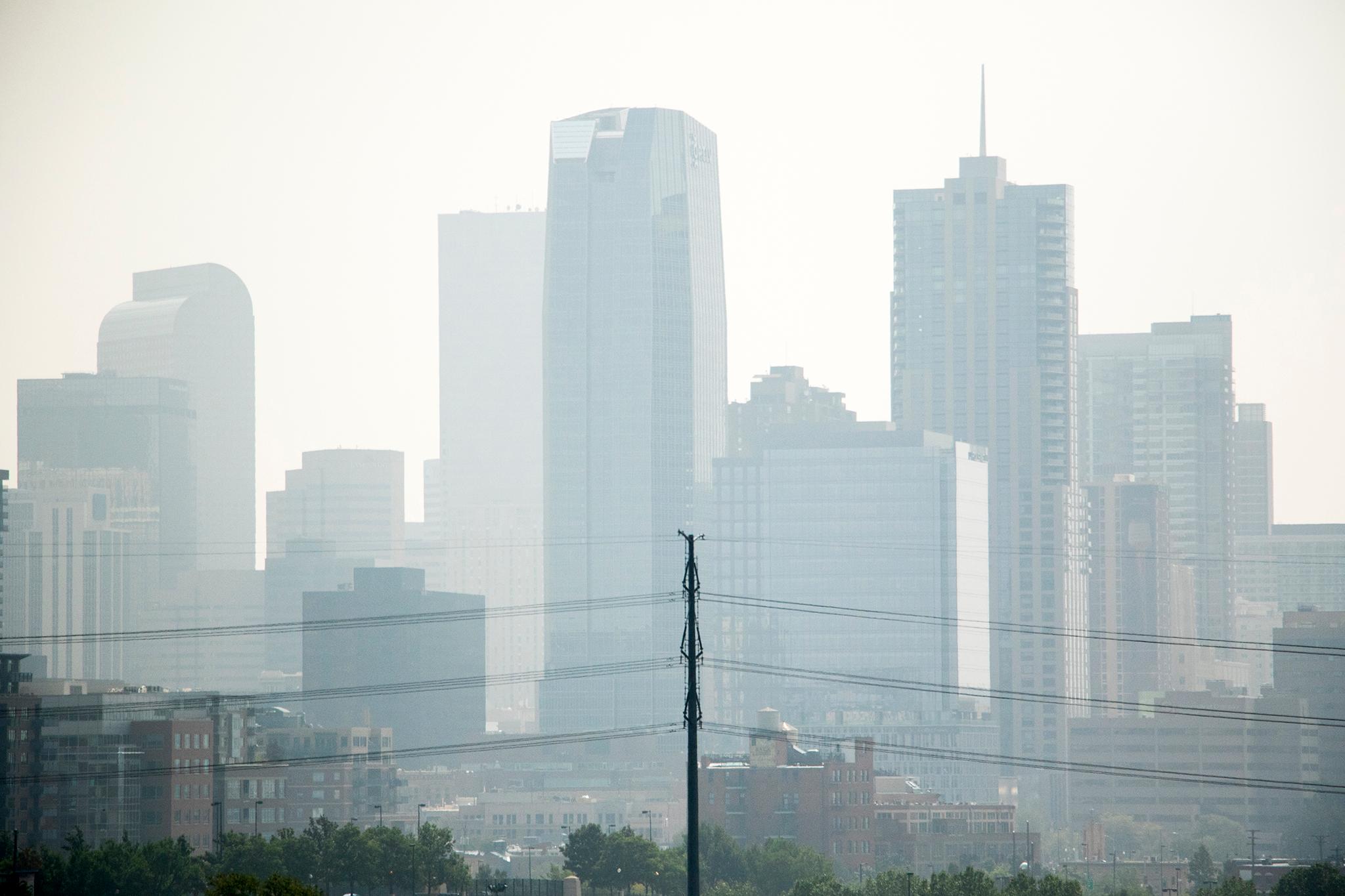Local activists hope to curb climate change with investments in green jobs, sustainable transportation, clean energy and neighborhood programs paid for by new citywide taxes on electricity and natural gas.
If voters put the initiative on the ballot and pass it, most Denver property owners -- commercial, industrial and residential -- would receive a monthly allowance for how much electricity and natural gas they can use. The owner of any building that exceeds the cap would pay extra.
The initiative, which will need about 9,000 signatures to make the November 2021 ballot, is nicknamed "Polluters Must Pay."
"If we make the polluters pay and then we drive those dollars back into the communities that are facing the burden, then we're living up to climate justice in our minds," said Ean Tafoya, who, with fellow climate activist Brandon Rietheimer, filed the initiative with the Denver City Attorney's Office on Tuesday.
Denver's lower-income residents and people of color stand to bear the brunt of climate change, according to local and national research. The ordinance exempts low-income residents who receive government aid for things like food and energy costs. Property owners enrolled in renewable energy programs, including people with solar panels, would not have to pay the electricity tax, the ordinance states.
Residential property owners would have the smallest allowance and pay the least if they go over the cap -- 20 cents per therm (the measurement for natural gas use) and .02 cents per kilowatt (electricity). Both allowances and fees scale up for commercial and industrial buildings, the draft ordinance states.
"We believe these allowances will exempt a majority of regular consumers, and it really will be going after polluters with excessively high electric and gas bills," Tafoya said.
Buildings and homes are responsible for 63 percent of the city's harmful greenhouse gas emissions, according to the city government.
Organizers estimate the taxes will raise $130 million a year. That money would buy job training in clean energy and natural resource management, the ordinance states, and energy-efficient upgrades for buildings. Taxpayers would also fund government investments in solar power and battery storage, clean transportation infrastructure, and programs to help neighborhoods prepare for a changing climate.
Xcel Energy seems initially concerned with the ripple effects of the initiative on local businesses.
"Before any potential energy tax goes on the ballot, it's important that we fully understand how it would impact the residents and businesses of Denver," the spokesperson said in a statement. "We look forward to reviewing the proposal and will weigh in at the appropriate time."
Other groups have been quicker to signal their opposition. Kathie Barstnar, who represents commercial real estate developers for NAIOP Colorado, called it "disheartening" to see a proposal for more revenue months after Denver passed a climate sales tax.
"I will spend more time reviewing this language, but my initial concern would be that this will have the biggest negative impact on the very communities they are proposing to help," said Barstnar.
The energy tax proposal is meant to improve on a ballot initiative Tafoya and Reitmeier proposed two years ago. That version did not include a threshold for energy use, so homes and businesses would have paid the tax regardless of how much energy they used.
After the measure qualified for the ballot in 2020, politics took over. Activists pulled the measure when the Denver City Council pursued a tax solely on commercial and residential properties. The council then paused its initiative when Mayor Michael Hancock ceded climate funding and created a new climate division with a task force. Its Members quickly realized the initial energy tax would have faced stiff opposition from Xcel Energy, Colorado's largest power provider.
In the end, the task force recommended city council refer a sales tax to voters as opposed to an energy tax. The result was Measure 2A, which passed by a 2-1 majority last November and secured between $20 million to $40 million a year for Denver climate projects. Tafoya doesn't see that windfall as enough to tackle a crisis like climate change and said the taxes will help sections of society hurt by pollution as well as the pandemic.
"What I can tell you is that there is a brown cloud in Denver today. What I can tell you is that my people, Latino people, indigenous people, Black people, are dying at disproportionate rates because of long-term exposure to air pollution," Tafoya said. "And it's the polluters who are putting it out there."
If voters approve the ordinance, Denver would become the first major city in America to institute a carbon tax. Boulder passed a similar carbon tax in 2005 focused on electricity, not natural gas, and has seen a 21 percent drop in greenhouse gasses since 2005, said Jonathan Koehn, the city's chief sustainability and resilience officer.
"And it's not just a reflection of reducing emissions, it's also providing value back to our community," said Koehn. "How do we make lives better? How do we allow individuals to see themselves in the process, and how do we drive collective and systemic change that needs to occur to address the global climate crisis?"
Part of the answer, Koehn says, is the city incentivizing property owners to shift the way they use fossil fuel energy while using tax revenue to invest in clean energy and infrastructure.













